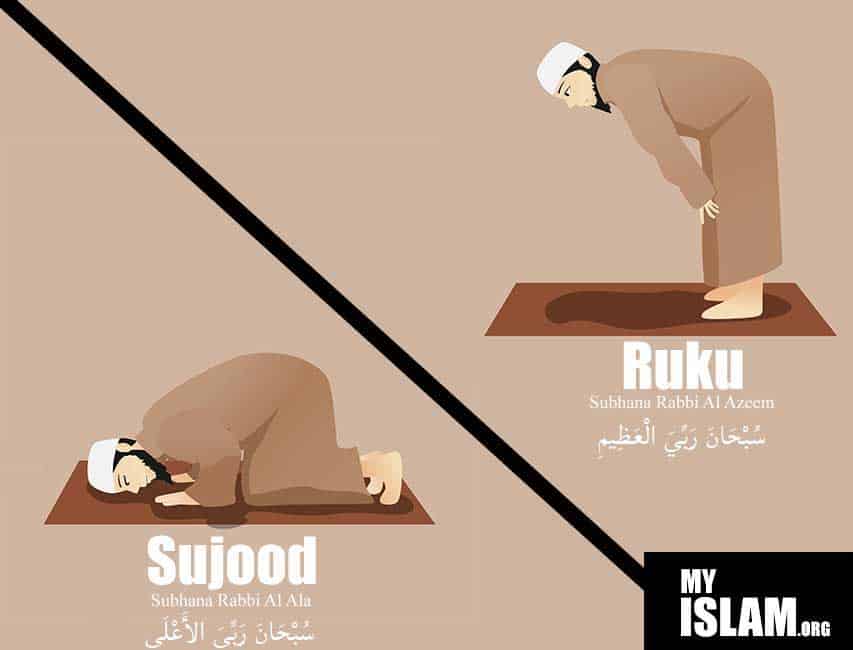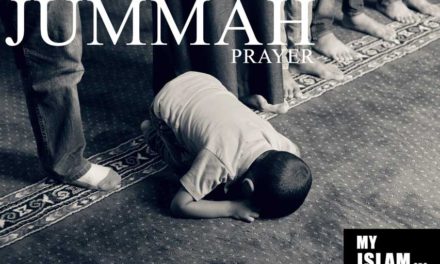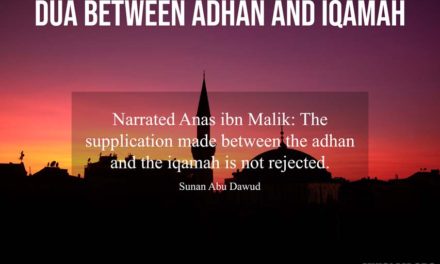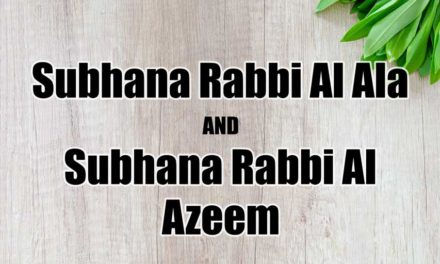
If you’re just learning how to pray Salah then it’s quite understandable how you can be confused and mix what tasbeeh is said during Ruku or Sujood.
It is really important to learn the correct way of prayer and to say the right dhikr at the right place.
First let’s clarify the terminology.
Ruku is known as the bowing position (as seen in the upper right hand side of the picture).
Sujood (sujud or sometimes referred to as sajdah) is the prostrating position.
What is said in Ruku of Salah
In Ruku the tasbeeh which is recited is subhaana rabbiyal azeem which means “Glory be to my Lord Almighty”. It is the sunnah of Prophet Muhammad that he recited it three times.
What is said in Sujood of Salah
In Sujood the tasbeeh recited is subhana rabbiyal a’la which means “Glory is to my Lord, the Most High”. It is the sunnah of Prophet Muhammad that he also recited this three times.
A common question many believers have is wondering if their Salah is still valid if they make a mistake?
There are two cases:
1. Mixing – if in sujood you realize you have mixed the phrases it does not nullify the salah. Before you rise up say the correct tasbih and you have not missed a wajib (required) act.
2. Incorrectly – if you have incorrectly missed the opportunity to say the right dhikr do not try and go back into ruku or sajdah once you realize. This would render your prayer invalid since you have changed the steps of salah. It is advised to complete the prostration of forgetfulness. If you are praying behind the Imam then you are released from this requirement.
Allah knows best.
If you would like to see our step by step guide to learning how to perfect the Salat see the complete guide by clicking here. Jazakallah.
It was narrated from Hudhaifah that:
He prayed beside the Prophet (ﷺ) one night. He recited, and when he came to a verse that mentioned punishment, he would pause and seek refuge with Allah; if he came to a verse that mentioned mercy, he would pause for mercy. In his bowing he would say: ‘Subhana Rabbil-Azim (Glory be to my Lord Almighty)’ and in his prostration he would say: ‘Subhan Rabbil-A’la (Glory be to my Lord the Most High).'”
Grade: Sahih (Darussalam)
Reference: Sunan an-Nasa’i 1008





Dear sirs
As to my knowledge jimmy prayer
Is man made the prayers that are in The Quran are fager Maghrib And Isha from Monday to Monday so the midday Friday prayer does not exist
Thank and only Allah knows